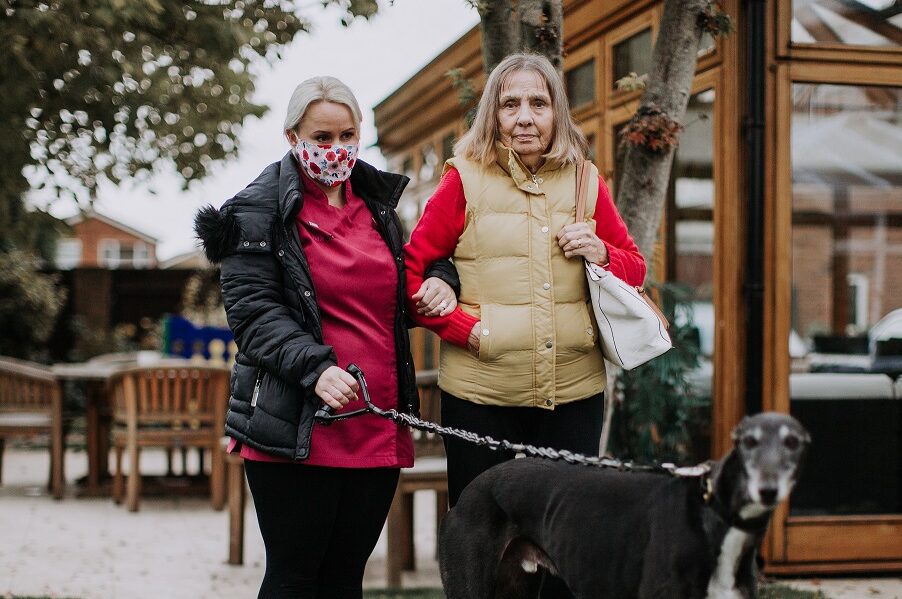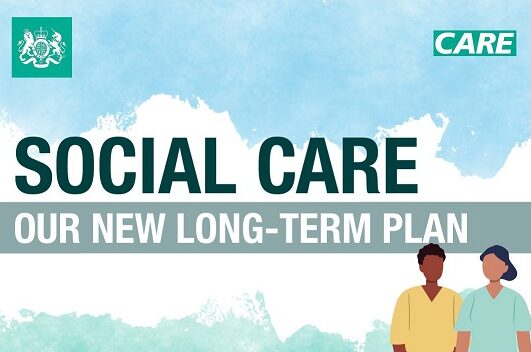
Making the most of our people
With or without reform, the quality, reliability and effectiveness of our adult social care system depends on a workforce that feels valued, supported and encouraged to be the best.
It is no accident this White Paper is called ‘People at the Heart of Care’. It is about people delivering services and also those receiving them. That’s why I’m delighted at least £500 million of the £1.7 billion announced will be used to transform the way we support, sustain and develop the workforce. Much of this support will be focused on levelling up the knowledge, skills and experience of care colleagues across the sector.
By establishing a new knowledge and skills framework (KSF), promoting varied careers pathways and making the most of additional investment in learning and development, alongside support for careworkers and other staff, we can provide the professional progression our registered workforce, including registered managers (RMs) need and deserve.
Indeed, RMs are arguably the backbone of the social care system and undoubtedly proved their worth during the pandemic. The more we can do to support them with the best training and workplace resources, especially during their first year in post, the more they can do for the teams they lead. In this respect, they are critical to mobilising and leading the reform agenda in the workforce.

Demonstrating high standards
Care certificates, for example, will create a new delivery standard recognised across the sector, which will facilitate more rewarding career paths for all colleagues and make sure there is a knowledge baseline for every care role. The new delivery standards will also mean these certificates are portable, allowing new and existing staff to move roles with greater ease without the need to repeat training. These changes will mean care certificates will form part of a robust induction programme for those new to social care and offer a clear demonstration they have the skills needed to deliver great care.
I’m also pleased to see continuous professional development (CPD) budgets boosted for registered nurses, nursing associates, occupational therapists, and other allied health professionals. Social care is such a broad church of talents, it is essential we level up with NHS colleagues and ensure equal access to learning and development.
This includes additional investment in social worker training routes at a time when adult social work increasingly intersects with other care and clinical professions, especially in respect of the Mental Health and Mental Capacity Acts. You can read more about this aspect of reform in the Chief Social Worker for Adults, Lyn Romeo’s latest blog.
 Future proofing the care sector
Future proofing the care sector
All of this is in service to building professionalism, workforce confidence, and taking the exemplary practice we have seen during the pandemic and embedding it in a care sector fit for the future.
And ‘fit for the future’ also means supporting the mental health and general wellbeing of care colleagues performing increasingly complex roles. As a result of these reforms, we want many more of them to know and feel social care is a rewarding career with clear opportunities to develop, progress and feel valued for the positive changes they bring to those they care for.
Social care is not a concept - it is about real life and making a difference. These reforms, we hope, will help make it a better life for all of us.
Find out more
Read the White Paper to find out more and visit our new Transforming Social Care campaign website, where you’ll find some fantastic resources, including case studies, testimonies and further information, digging deeper into what these major reforms will mean for individuals, families and our wider communities.
2 comments
Comment by Jane Connolly posted on
The front line bottom ring of the care work force already have extensive mandatory training and regular refreshers. Theres als a transferable cerrificate that goes with them. There is no suggestion that there will be any better pay policies or better pensions inline with The NHS. Nor improved sick pay or holiday. This does absolutely nothing for those on the frontline. But helps the top people yet again social workers (who often brag about their super dooper pension) and able to live off the wage putting in a 3 or 4day a week. Whilst the frontline staff work a 60 hr week one to cover staff shortage 2 to make their pay. This is NOT LEVELLING UP AT ALL. but again undermining and undervalying the frontline care workforce. This white paper will only make the better iff richee you will not fill these thousands if vacancies unless you drastically increaae pay and conditions
Comment by Mandy Knock posted on
I totally agree with the above statement, the only way to improve the care sector services, recruitment and retention issues, is to provide them with an improved rate of pay and conditions, which would reflect the hard work that they do.
Value the Carers role, this would then help encourage and retain care staff in the care sector.